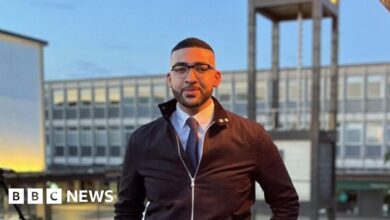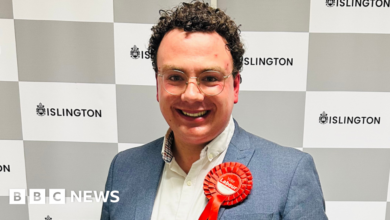Angela Rayner: Councils must meet housing targets
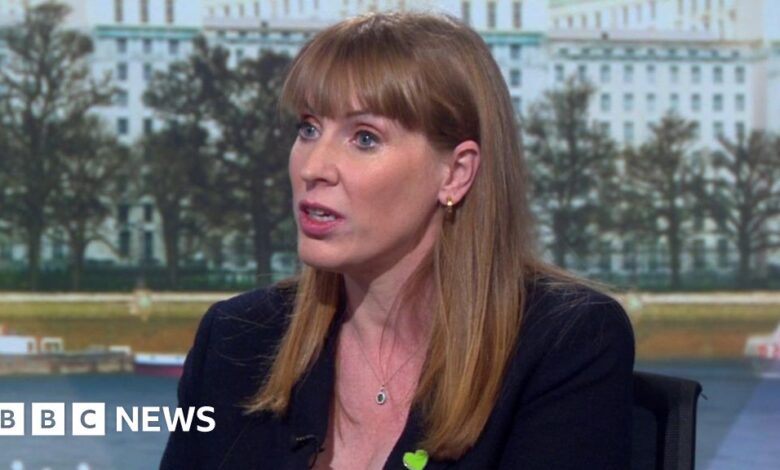
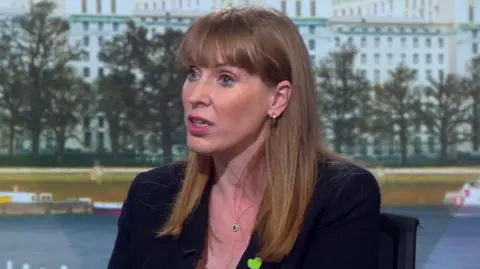 BBC
BBCAngela Rayner has insisted that councils must meet the government’s housing targets, after local authorities branded them impossible to achieve.
A BBC investigation found the vast majority of councils raised concerns about the government’s flagship plan to build 1.5 million new homes in England over the next five years in a recent consultation.
The housing secretary told the BBC’s Politics Live programme the government was listening to councils but the targets were mandatory.
She added: “We’ve got a housing crisis in this country and therefore I make no apologies for the mandate that we were given to deliver the homes that people desperately need.”
Many councils accept the need for more new homes – but they are concerned about whether the targets handed to each of the 317 authorities in England are realistic or achievable.
They fear the algorithm used to calculate the targets has not taken into account strains on local infrastructure, land shortages, and a lack of capacity in the planning system and construction industry.
The concerns are shared by Labour, Conservative and Liberal Democrat authorities, according to BBC analysis of 90% of the consultation responses.
Asked whether the government would force councils to meet the targets, Rayner said: “We are saying that they’re mandatory targets…
“So we’re telling [councils], this is what we expect, and we’ll work with them to deliver it.”
She pointed to £500m of extra funding for new affordable homes announced in the Budget as an example of support the government was providing.
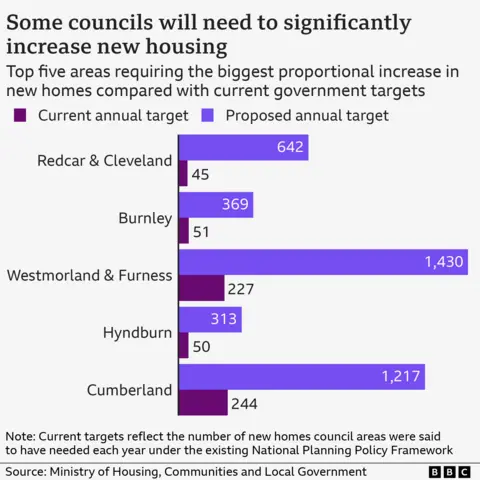
Rayner was also asked about the resignation of Louise Haigh as transport secretary, after it emerged she pleaded guilty to a fraud offence a decade ago.
Pressed over whether Haigh had been treated fairly, Rayner said she respected her colleague’s decision to resign and described her as “an outstanding member of our cabinet”.
Asked whether Haigh should accept the £17,000 loss-of-office payment she is entitled to if not appointed to a new role within three weeks, Rayner said “that’s a decision for her”.
However, she added that if it was within the rules “then I don’t see why she shouldn’t”.
The interview with Rayner was part of the BBC’s 100 Women project.
The housing secretary, who is also deputy prime minister, is among those to feature on this year’s list of influential and inspiring women around the world, along with Conservative Party leader Kemi Badenoch.
Badenoch – the first black woman to lead a major UK political party – has previously said she would rather people focus on political issues than her ethnicity or sex.
Asked if she was right and it was not a “big deal”, Rayner said: “Of course it’s a big deal because I do think that women face barriers, and I think women of colour face barriers as well.”
However, she added that “it doesn’t also detract from the skills that a person has”.
“I often get described as left school at 16 without any qualifications, and there’s so much more to me than being a woman or being working class.”
Asked if she would still be able to achieve what she has if she was a young person today in the face of struggling public services, stagnating wages and cost-of-living pressures, Rayner acknowledged it would be “a challenge” and “you have to have a bit of luck”.
But she said the government wanted to invest in state education “so that people have those opportunities that I had”.
Rayner added that as deputy prime minister she felt she had to do herself justice.
“I don’t want to let people down,” she said. “I’ve always had that fear. That’s what spurs me on.”



